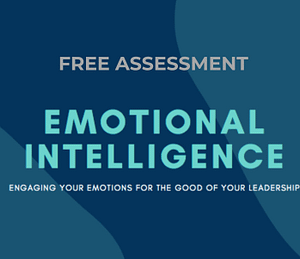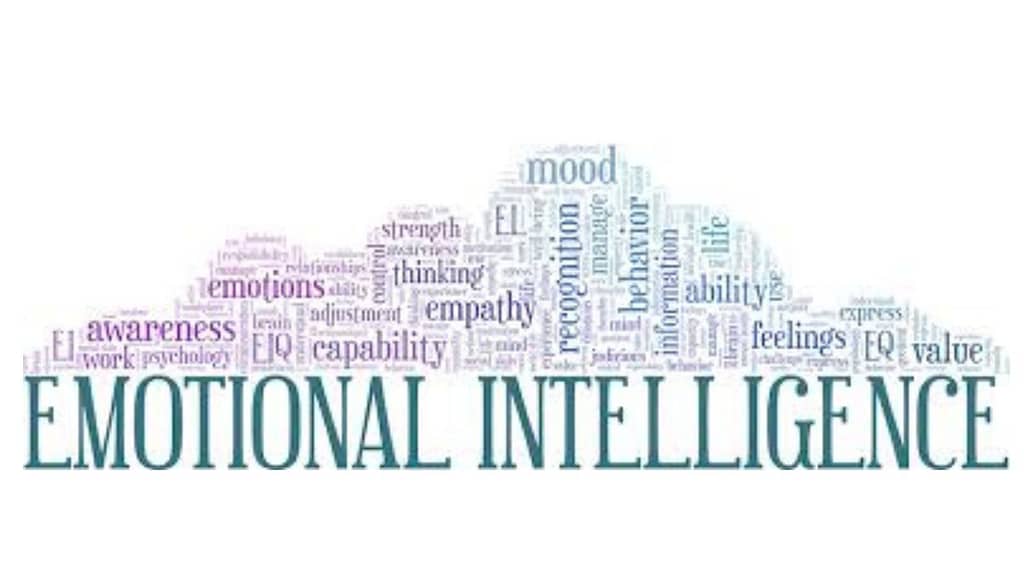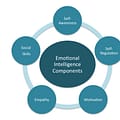Emotional Intelligence as you know has now become an important aspect of success in the profession and business.
The ultimate aim of Leaders and Managers is to lead effectively.
For leaders to thrive and lead successfully, developing their Emotional intelligence has become even more so important.
If you are looking forward to being an effective leader or manager, then you are reading the right post.
As I discussed in my previous blog Emotional intelligence has 5 main core competencies which are important for personal and professional growth and success, Emotional intelligence is a big umbrella term and its 5 core competencies or domains are made up of 25 sub-skills.
All these competencies are important for leadership positions and are beneficial for all managers, leaders as well as employees.
They help lead effectively.
If you desire to lead effectively and experience more success in your profession and career, then you must read this post to deepen your knowledge and master the 25 different sub-competencies which will help you in becoming an effective leader, and manager.
THE SKILLS ARE DIVIDED INTO TWO SEPARATE SECTIONS
PERSONAL SKILLS -The Way We Manage Ourselves.
It is composed of Self Awareness, Self-regulation, and Motivation.
1.SELF AWARENESS
-
Emotional Awareness
-
Accurate Self Assessment
-
Self Confidence
2.SELF REGULATION
-
Self Control
-
Trustworthiness
-
Conscientiousness
-
Adaptability
-
Innovativeness/Creativity
3.MOTIVATION
-
Achievement Drive
-
Commitment
-
Initiative
-
Positive attitude
SOCIAL SKILLS -The Way we manage others and handle our relationships with others. This domain includes Empathy and Relationship management.
4. EMPATHY
-
The way we understand others
-
Developing others
-
Service orientation
-
Leveraging diversity
-
Political awareness -Group dynamics in organisation, power structure .
5.RELATIONSHIP MANAGEMENT
-
Influence
-
Communication
-
Conflict management
-
Leadership
-
Change Management
-
Building bonds
-
Collaboration
-
Team Work
Let us dive deeper into the Subskills of each of the 5 Main Domains !
Self-awareness– It encompasses:
-
Emotional awareness
-
Accurate self-assessment
-
Self-confidence
Self-awareness :It is a crucial part of emotional intelligence
According to Daniel Goleman, an expert in emotional intelligence, Self-awareness is the first critical component of the 5 competencies that make EI.
Self-awareness helps you to stay connected with and understand yourself and your deep-rooted values. It is very essential for your health and well-being.
Self-awareness is important for the following reasons :
-
You are more aware of and understand your own emotions, and why they occur in some situations.
-
Understand the connection between your thoughts emotions and feelings and actions.
-
Understand how your feelings will impact your performance.
-
Be guided by your values
-
Helps you respond to others’ emotions appropriately.
Accurate Self Assessment
Accurate self-assessment is important to know your strengths and weaknesses,-ie , your inner resources and your limits.
Accurate self-assessment can be possible from practices like self-reflection, learning from experiences, and being open to feedback.
-
Knowing your strengths and weaknesses helps you navigate in this world and use your own as well as others’ potential optimally, to feel fulfilled and happy.
-
Set realistic goals, and have an accurate estimation of the time taken to accomplish it.
-
Not be blinded by ambition.
-
Be self-loving and compassionate to prevent burnout.
-
An accurate assessment of your emotions and feelings helps in enhancing your self-esteem and confidence.
Self-confidence-It is a very important value to demonstrate during tough times and is a critical skill for being successful in your job.
Self-confidence stems from accurate self-assessment.
Confidence comes from knowing our self-worth and value and not depending on validation from others.
-
Self-confidence helps you to be more attractive and influential.
-
It helps you to be assertive, instead of being passive or aggressive.
-
It makes you authentic.
-
Helps in making effective decisions.
2. Self-management and Self-regulation
Self Regulation and Self Management is the second most critical component of Emotional Intelligence .
Self-regulation is composed of :
-
Self-control
-
Trustworthiness
-
Conscientiousness
-
Adaptability
-
Innovation
Self-regulation and Self Management relate to your ability to identify, control and manage your impulses and disruptive emotions to maintain your effectiveness under stressful and adverse conditions.
Self-regulation means to act from the knowledge that you are responsible for your actions and be guided by your values and principles.
Self Control
Self-control helps you to recognize your emotions and respond appropriately in any unpleasant situation.
Self-control helps you to remain calm, balanced, and rational in any stressful or adverse situation. It helps in thinking clearly and taking effective decisions rather than acting impulsively.
Self-reflection is very important for self-control.
If you have reacted unpleasantly in any situation in the past, self-reflection helps you to analyze and understand what caused you to behave inappropriately in that situation and learn from your mistakes and act more intelligently in the future.
Trustworthiness-It is also known as integrity .-Trust worthiness is a value that helps you act with more responsibility.
Trustworthiness also means being more ethical and reliable by staying true to yourself as well as others.
Conscientiousness-Is the ability to act by your abilities and values.
Conscientious people are more consistent with their values. They are more careful, organized, and focused. They stand up for what they believe is right.
They are committed and fulfill their promises.
Adaptability-It is the ability to be flexible and adapt to changes and see change as an adventure, instead of seeing it as a problem and feeling stressed during change.
Adaptability helps you to stay focused on your goals, and easily adjust how to get there.
Adaptable people are – flexible in the face of change, open to new situations, innovative, see multiple perspectives, prioritize effectively, and manage multiple demands more effectively. They are more resilient.
Innovation-Innovativeness is the ability to be open to new ideas, and take risks where necessary. Innovativeness helps in solving problems creatively. Innovative people are open-minded and more open to new ideas from others.
Motivation
Motivation is the third most important element of Emotional intelligence.
Motivation is the inner drive that pushes you to achieve your goal, improve the quality of your life, and feel more fulfilled.
It is a force that impacts all other areas of life.
Knowing and developing your motivation helps you to control many aspects of your life.
There are two types of motivations :
Intrinsic – Things we want to do. Some examples may be -to overcome a challenge like weight loss or increase your income to afford a better lifestyle.
Extrinsic: Things we must do. Example -Competing in sports for trophy, or buy one and get one free in sales.
Daniel Goleman, an expert on Emotional Intelligence, identified four elements that makeup motivation:
Achievement Drive – Achievement drive is defined as having high personal and professional standards, and striving to improve or meet new, higher standards of excellence.
High achievers meet or exceed standards by embracing challenges, taking calculated risks, and looking for ways to do things better.
Commitment – A Promise to self to accomplish personal or professional goals.
The initiative-Initiative, is the ‘readiness to act on new opportunities. It is the ability to see and do what is necessary without waiting for somebody to tell you. People who take the initiative act or take charge before others do.
Optimism-Optimism is a mental attitude characterized by hope and confidence in success and a positive future.
Optimism helps you to see the best in people, situations, and events so you can be persistent in pursuing your goals despite setbacks and obstacles.
Optimism also helps you to keep moving in face of adversity and setbacks.
It strengthens your resilience .
To sum up, Self-motivation drives a person to keep going even in the face of challenges and setbacks, take up new opportunities, and stay committed to what he wants to achieve.
Social Awareness
It is the ability to consider others perspectives ,empathise with others ,including those from diverse background and culture. The ability to understand social and ethical norms for behavior and to recognize family, school, and community resources and supports.
Empathy-Empathy is an awareness of the emotions, needs, and feelings of others both individually and in groups, being able to see things from other’s perspectives and take an active interest in their concerns.
It is an important skill that helps you to connect with others by using your imagination to understand and experience their experiences. It can be developed with time.
There are Three Types of Empathy
Psychologists have identified three types of empathy: cognitive empathy, emotional empathy, and compassionate empathy.
-
Cognitive empathy also known as empathic accuracy involves “having more complete and accurate knowledge about the contents of another person’s mind, including how the person feels,”.
-
Emotional empathy (also known as affective empathy or emotional contagion) is the ability to share the feelings of another person.
-
Compassionate empathy (also known as an empathic concern) goes beyond simply understanding others and sharing their feelings: it moves us to take action, to help however we can.
Empathy includes 5 elements and they are :
-
Understanding others
-
Developing others
-
Service orientation
-
Leveraging diversity
-
Political awareness -Groups dynamics in organization, power structure
.
1.Understanding others -It means to sense others’ feelings, understand their point of view, take a keen interest in their concerns and help them.
To cultivate this skill, it is essential to actively listen and notice both verbal and nonverbal messages -like body movements, gestures, and physical signs of emotions.
Techniques like clarifying, questioning, and feedback give you a better insight into the needs and perspectives of other people.
2.Developing Others-To develop others means helping them use their potential optimally.
For developing others, one needs to help them fulfill their needs and reach their goals.
People development requires skills like giving and receiving constructive feedback and mentoring and coaching to help them reach their full potential.
3. Service Orientation
Service orientation means prioritizing the needs of customers. It includes building trust with customers, improving customer satisfaction, and looking for ways to retain customers in the long term.
4.Leveraging Diversity
Leveraging diversity means creating an atmosphere where everyone respects and celebrates each other’s differences and unique potential.
Opportunities are created and developed by leveraging the talents of different people by believing that everyone has something different and valuable to bring to the table.
5.Political Awareness
Also is known as organizational awareness.
It means awareness about the power structure and emotional undercurrents prevailing in the organization.
It is a useful skill for navigating successfully in the organization and getting things done by identifying influencers, networks, and the dynamics that matter in decision-making.
Social Skills
Social skills cover a wide range of interpersonal and relationship skills.
These range from empathy, service orientation, influencing and managing conflict, leadership and collaboration.
All these skills are essential to build relationships. handle and influence the emotions of other people effectively.
To master social skills it is essential to master your personal skills like self-esteem and confidence.
If you have poor personal skills, you will not be able to understand and accept your own emotions.
This will make it difficult for you to become approachable to others, lower your impact and influence on others and build more distrust in others.
So mastering personal skills is important to have good social skills.
Here are 8 Social Skills needed to develop good relationships and influence others.
-
Persuasion and Influencing others
-
Communication
-
Conflict management
-
Leadership
-
Change Management
-
Rapport Building
-
Collaboration
-
Team Work
Persuasion and Influencing others .
Persuasion is the process of persuading someone or of being persuaded to do or believe something.
People who are persuasive, influence and enthuse others and win them over to their ideas and way of doing things to gain their support.
To be a successful influencer, one needs to be a good empathizer and communicator so that he can engage others meaningfully .
Communication Skills
Communication means conveying information from one place to another.
Communication skills are vital for career success.
Effective Communication requires listening to others, speaking to convey your thoughts clearly, and writing effectively.
Poor communication skills may lead to conflicts and lower the productivity of the team members while effective communication can minimize conflicts, contribute to a healthy workplace environment and lower the morale of the team.
Conflict Management Skills
Conflict management is the use of techniques to resolve disagreements or control the level of discord.
It is the ability to navigate through tense or highly charged situations by tactfully bringing discord into the open, seeking to understand diverse viewpoints, and finding a common ground to find solutions people can agree to.
Conflict management in the organization is a vital skill because, in the face of diversity, conflicts and discords are bound to arise.
Bringing the disagreements into open and resolving them helps in diffusing difficult situations, minimizing workplace stress, and achieving goals faster.
Leadership Skills
Leadership means having a vision and direction for the future and inspiring everyone with it.
To get the job done, leaders need to motivate others around a shared purpose or mission and bring out the best in them.
Good Leadership requires supporting and guiding the performance of the team members and holding them accountable.
Here coaching ability is needed to further the learning or development of others by understanding their goals, challenging them, giving them timely feedback, and offering them support.
Therefore to be an effective leader one needs to have higher emotional awareness, be able to influence others, and lead by example.
Change Management Skills
Change is a universal truth. Change is inevitable.
Change can be quite stressful for many because they see change as a threat and do not take to it sportingly.
Because change-making requires the willingness of all to make the change, therefore to be an effective change-maker, one needs to recognize and remove the mental blocks that hold people from seeing change as an opportunity and lead from the front.
Rapport Building
Building rapport is important to build and maintain relationships with other people, because to work together you need to have good relationships with others. Rapport is built by sharing some things you have in common with the other person, like mindset, habits, culture, or common problems.
Healthy rapport also helps in leveraging other people’s potential well.
Rapport building requires empathy, communication, and strong networking skills.
Collaboration
One person can’t single-handedly achieve anything. Collaboration is important for achieving anything.
Collaboration means sharing ideas, skills, and talents to work together to reach the desired common objective which is beneficial for all.
To collaborate productively it is important to have good rapport-building, communication, problem-solving, emotional intelligence, and conflict-resolution skills.
Team Work
Teamwork means a group of people working together toward a common goal.
Achieving a goal is often easier when tasks are done cooperatively rather than relying on each individual’s singular efforts.
A high-performing team is necessary for the success of any organization or business. If the organization is successful, everyone benefits from it.
A high-performing team is one where :
-
The potential of each member is utilized to advantage.
-
Each member has a chance to perform and grow individually.
-
Members are high-spirited and have positive relationships with each other.
-
Members respect, trust, and support each other,
-
Members are committed and share responsibilities and rewards among themselves.
-
They participate actively and come up with better approaches.
-
They embrace individual differences and collaborate to work towards a bigger whole.
Working in a team with people with diverse mindsets and backgrounds is not easy.
Building an effective high performing team takes practice and guidance.
CONCLUSION
I believe by now you have gained a deeper awareness of the different competencies of emotional intelligence.
All of these competencies are necessary to develop your emotional intelligence and grow professionally and personally.
Whether you aim to be a manager or get promoted as a team leader or organizational leader, the importance of emotional intelligence for long-term success cannot be denied.
If you are looking forward to developing your emotional intelligence, a piece of advice I would like to give you is, to start working with Self-awareness first and then slowly work your way up toward developing other competencies.
To help you further , read –
18 Reasons Why You Must Develop Your Emotional Intelligence .
How has the post helped you?
If there is any competency you are looking forward to developing and need help with it, share your comments below.
Get the Free EI Assessment to know and work on improving your EQ Below:

No Fields Found.







